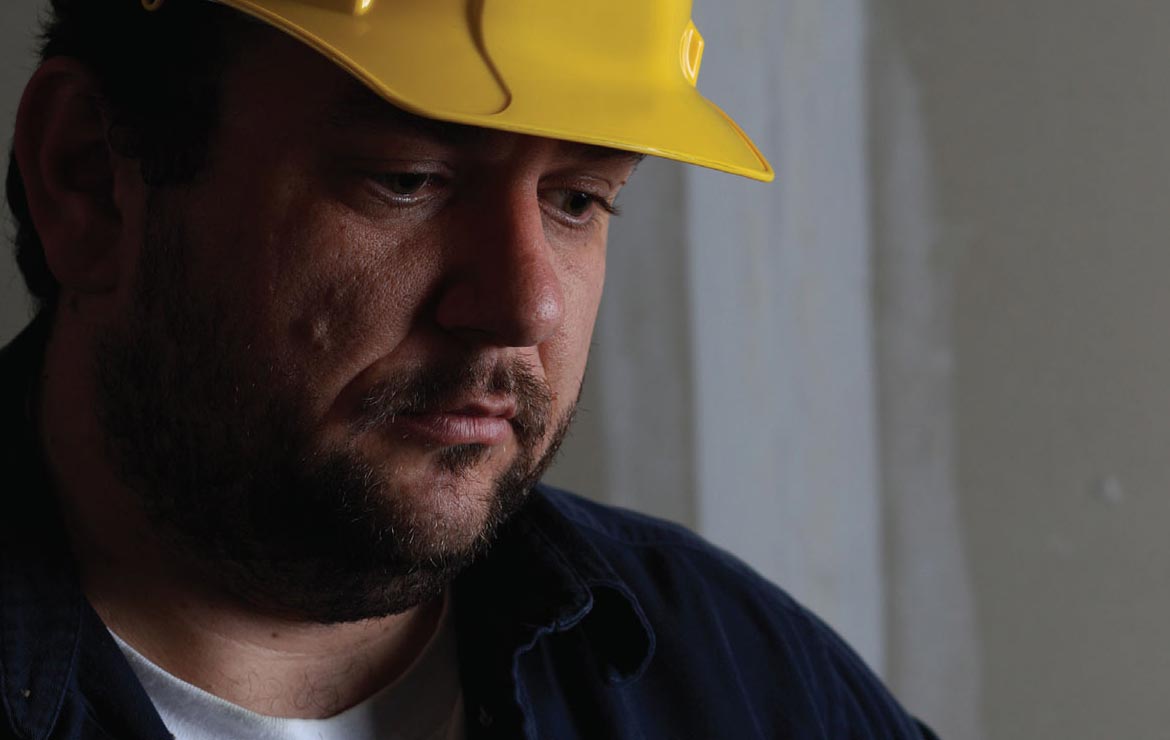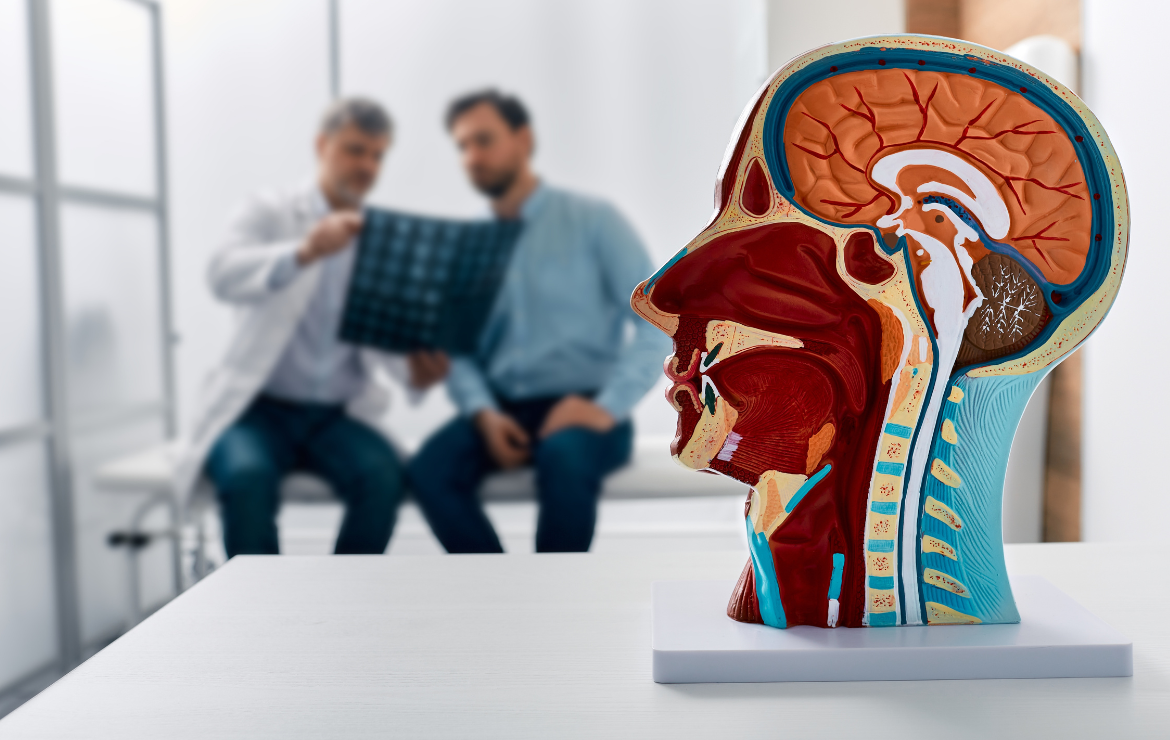Telehealth, Mental Health, and More During COVID-19: An MTI America Perspective

During a health crisis like COVID-19, mental health issues often increase. For employees out of work due to injury, then, monitoring their mental health during a crisis is a must.
Mental health disorders cover a wide range of conditions — including mood, thinking and behavior disorders — that affect millions of people in the United States. In any given year, about one in five adults will have been diagnosed with a mental disorder, with the most common disorders being anxiety and depression. And while most people experience stress and sadness from time to time, these feelings are often temporary. Mental health disorders last longer — weeks, months or even years.
Injuries on the job are often clear-cut. But the mental struggles that arise from those injuries aren’t always so visible. Researchers at the Institute for Work & Health found that during the first 12 months after a work injury, about half of the workers interviewed had feelings of depression, with one in ten being diagnosed with depression during this period. Injured workers can also struggle with feelings of anger, anxiety, hopelessness and inferiority. If workers are in chronic pain, the risk for depression is further worsened.
Though mental health is just as important as physical health, it’s often not given the same time or attention in the workers’ compensation space. Workers’ compensation professionals do the best they can to provide for injured workers, communicating with them and working toward recovery and return to work, but workers’ comp coverage can be limited.
During a health crisis like COVID-19, mental health issues often increase. Distance from family and friends, breaks in normal routines, and the inability to get out or release tension may decrease the coping mechanisms people ordinarily turn to in times of strife. Experts suggest that the anxiety of contracting a disease like coronavirus, coupled with the increase in isolation, can often worsen symptoms that are already present.
“Imagine being out of work and already facing an injury,” said president and co-founder of MTI America, Janet Kus. “Now add on a global pandemic. What does that do to the worker’s mental state?”
Challenges to Workers’ Compensation in the Age of COVID-19
Injuries are costly to employers, from the loss of productivity to absenteeism. In 2018, the total cost of work injuries in the United States was $170.8 billion, with an average of $41,000 per medically consulted injury.
But an injured worker with a mental health condition may be even more costly. Some experts estimate that mental illness like depression, alcohol, and drug addiction can prolong a worker’s disability and the costs associated with it.
With the onset of COVID-19, the workers’ comp industry may have to grapple with the potential for an increase in mental health cases. As of April 2020, there were 1,381,014 reported cases of COVID-19 worldwide, with numbers still mounting. As the global economy takes a major hit, employers are furloughing or laying off workers. Other workers are being asked to work from home during this time. Because of these changes, injured workers may have heightened fears about job security or their ability to return to a normal work routine.
In addition, injured workers may face another major hurdle: health concerns. “Some of these workers were out with illnesses that compromised their immune systems,” said Kus. “They could be vulnerable to infection and exacerbation of any preexisting conditions.”
So what can be done for these workers?
Breaking Down Mental Health And Telemedicine in Workers’ Compensation During COVID-19
As more is understood about COVID-19 and world leaders continue to make decisions based off the lessons learned, workers’ compensation professionals should be working toward mental health solutions for injured workers impacted by the pandemic. These solutions stem from better understanding signs of mental health issues and exploring telemedicine and other virtual psychological rehabilitation options, such as cognitive behavior therapy (CBT) and artificial intelligence (AI), for all vulnerable populations.
Awareness is the first step. One of the most important things workers’ compensation professionals can do is work to recognize warning signs of a mental health issue. Though every mental health disorder is different, common signs of mental illness in adults can include one or more of the following:
- Extreme worry or fear
- Feeling very sad or low
- Confused thinking or problems concentrating
- Extreme mood changes or swings
- Avoiding friends and social activities, or having difficulty relating to people
- Changes in sleeping or eating habits
- Abuse of alcohol or drugs
- Thinking about suicide
- Inability to carry out daily activities or handle daily stressors
Kus said addressing these mental health issues head-on could start with something as simple as letting workers know they are being heard — that though they may be quarantined or separated, they are not alone.
“We’re typically their first line of defense with dealing with depression because we’re coordinating their care from start to finish. So we have to help get these workers through this,” she said. “None of us want to see an exacerbation of existing mental health and substance abuse concerns for injured workers, now or in the future. MTI is all about providing services that will help minimize negative outcomes.”
The answer lies in telehealth. This kind of virtual support can decrease overall cost and help provide injured workers with the services they need.
Cem Kus, CEO, and co-founder of MTI America, said that the industry is well-positioned to use telehealth to respond to this crisis now. “Can you imagine if this happened 25 or 30 years ago?’ he asked. “Today, we have the means to work from home, see a doctor or therapist, and order groceries over the Internet. This is the way of the future, and the future is now.”
Some telehealth initiatives have already been implemented at MTI for several years, such as the use of texting to communicate, schedule, and conduct surveys with injured workers. In addition, MTI offers two critical telehealth solutions for injured workers during this unprecedented time: video remote interpretation (VRI) and telerehabilitation.
VRI connects multiple parties together via phone, tablet or video-enabled computer without an interpreter physically present, providing the benefit of face-to-face communication with the simplicity of over-the-phone interpretation. VRI is offered in over 250 languages and dialects including sign language and rare languages. For injured workers who do not speak English as a first language, VRI can help keep them connected to a critical lifeline at a time they may need it most.
Through telerehabilitation, workers can get on-demand, personalized video sessions with a licensed physical therapist or occupational therapist. For an injured worker struggling in isolation, telerehabilitation can engage him or her in their recovery and work to eliminate stressors to help boost their mental state.
“We’re proud of our ability to provide remote language services and physical therapy services as well as telerehabilitation,” said Kus. “Both service offerings have been well received by our clients and injured workers. These options have broken down cultural, language, and geographic barriers.”
Not only does telehealth offer substantial cost savings but its 24/7 convenience has the potential to revolutionize the workers’ compensation field. And right now, the future of telehealth is wide open.
“As an entrepreneur and founder of MTI, it’s exciting and humbling to be part of this epic delivery of remote medical care in physical therapy and language services during COVID-19,” said Janet Kus. “But we’re also looking to do more. Right now, we’re building out our telehealth initiatives for utilization across MTI’s integrated medical delivery platforms. As a forward-thinking organization, we’re always looking toward the future.”











